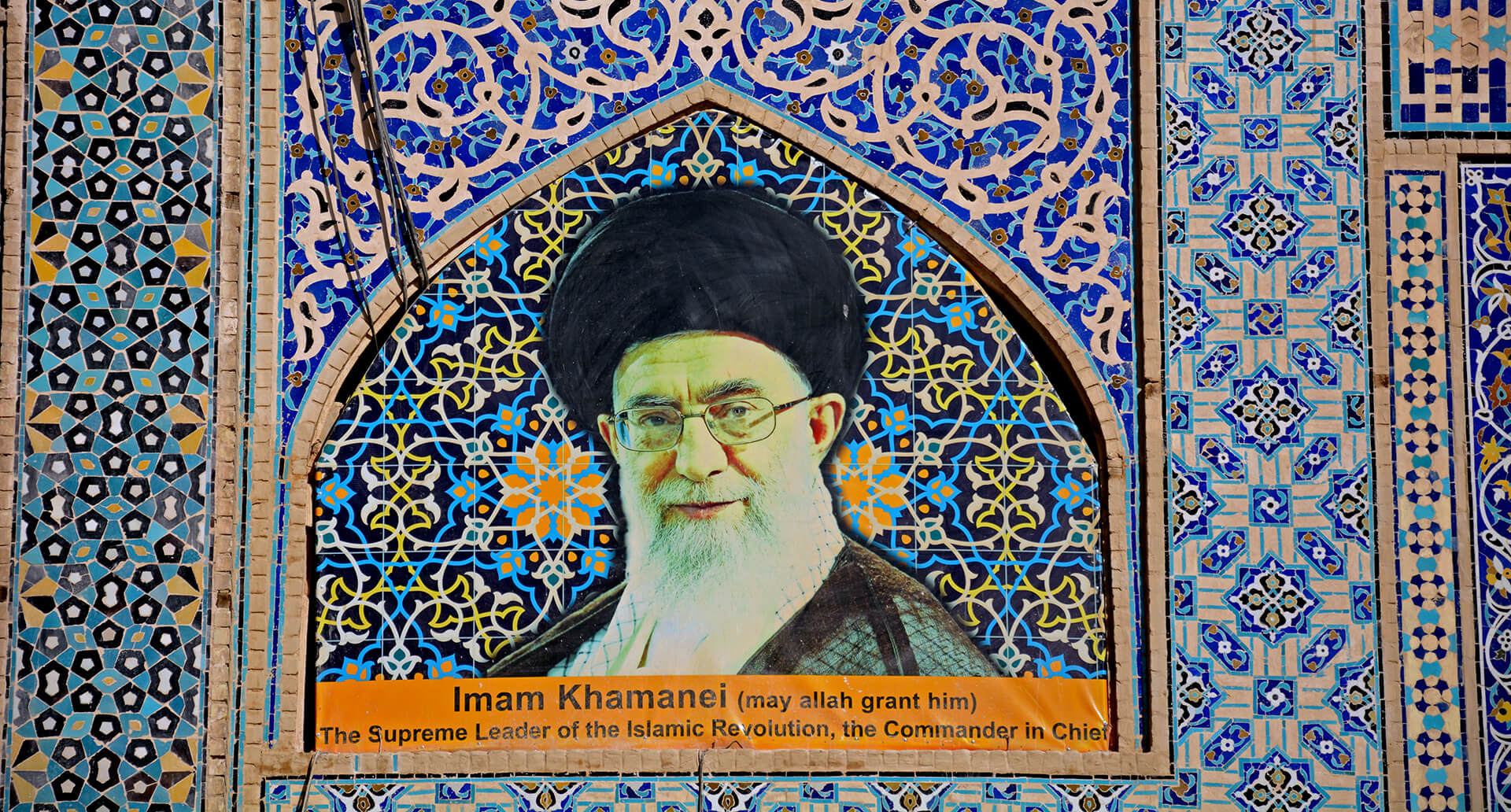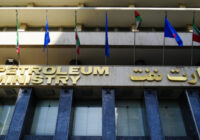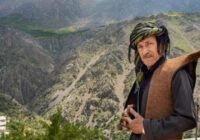Many people were horrified when news broke about the death of African-American man George Floyd who repeatedly said, “I can’t breathe, I can’t breathe” under the knee of a police officer.
Floyd’s death sparked a movement across the US to protest police brutality against black lives. That breath of life taken from Floyd by the knees of oppression is the same breath that people in Iran are fighting for. It is that lethal and discriminate application of force that Kurds have stood against for more than 40 years. It is that same sort of injustice that the Kurds and Baloch have been protesting against for more than two months despite a violent crackdown by the Islamic Republic of Iran.
I make this comparison between the George Floyd incident and the Iran protests ignited by the death of Kurdish girl Jina Mahsa Amini to highlight a phenomenon. I have noticed that leaders of the Islamic Republic, some Iranian activists and figures have been using the Black Civil Rights movement and notable leaders like Martin Luther King Jr. (MLK) or Rosa Parks to argue that they stand for justice and democratic values.
During MLK Day in 2015, The current supreme leader of Iran, Ayatollah Khamenei, tweeted, “Many years have passed since equality of blacks & whites was first declared on paper in US, but discrimination still prevails. #MLKDay.” This is but one of his many tweets over the years that is part of a regime propaganda campaign that seeks to portray the U.S. and other powers calling Iran out for its lack of accountability on human rights violations as hypocritical.
Many years have passed since equality of blacks & whites was first declared on paper in US, but discrimination still prevails. #MLKDay
— Khamenei.ir (@khamenei_ir) January 19, 2015
The exiled Reza Pahlavi, whose father was overthrown by a revolution in 1979, made similar tweets. The difference between the tweets is that Pahlavi was quoting MLK to garner international support for the cause of the Iranian people against the Islamic Republic.
Dr. Martin Luther King is one of my personal heroes. As I work to build international support for the Iranian people’s struggle, I often recall his famous covenant that “we will remember not the words of our enemies, but the silence of our friends.”
— Reza Pahlavi (@PahlaviReza) December 14, 2018
For many in Iran, particularly the Kurds, both Khamenei and Pahlavi’s comments are not only hypocritical but laughable. Although the Ayatollah and Pahlavi represent two clashing forces that define much of the modern history of Iran, they both have in common a fervent belief in Persian nationalism. Persian nationalism holds and enforces the view that Persian history, art, culture and language are superior to those of others. This nationalism has led Iran to ceaselessly try to erase the language, identity and history of the Kurdish, Baloch and other peoples of Iran that Tehran deems as inferior and a threat to its monopolization of power.
The Pahlavi dynasty disregarded the rights of non-Persian nations like the Kurds and Balochs. Their linguistic rights were specially targeted. In an interview, this so-called prince even mocks the right to mother tongue education and says that he finds this concept difficult to grasp. Such ignorance and dismissal of the rights of marginalized peoples like the Kurds, Baloch and others would make MLK and many other US civil rights activists turn in their graves.
As for Khamenei’s gross exploitation of the plight of African Americans, one would only need to look at Iran’s gross violations of human rights documentation compiled by Human Rights Watch, Amnesty International and other organizations to realize the hypocrisy of the mullah’s words. The Islamic Republic of Iran has carried out mass executions of Kurds, and thousands of other political dissidents and civil rights activists since its inception.
Revolution Erupted in Iran Because of Mohammad Reza Shah
In the current protests following Jina Amini’s death, forces of the Islamic Republic of Iran have killed 475 individuals, 65 of which have been children, and arrested 18,242 individuals, according to the latest figures by the Human Rights Activists News Agency (HRANA).
The Jina Amini uprising and the targeting of ethnic nations
Hengaw, a Kurdish human rights organization, reports that protests have erupted in 47 Kurdish cities. Of the total deaths, 122 are Kurdish, and 16 of these are children. The authorities have injured more than 8,000 individuals and arrested 6,500 in the Kurdish region.
The crackdown in Balochistan has been equally bloody. Amnesty International reports the death of at least 100 protesters, bystanders and worshippers, including 16 children, killed by security forces since September 30. The disproportionate death toll in ethnic enclaves suggests a deliberate targeting of non-Persian nations by the Islamic Republic of Iran.
Currently, Kurdish and Baluch cities are under heavy militarization and surveillance. There are reports and videos of military-grade weapons, vehicles and helicopters in operation on city streets. Regime forces have even stopped blood donations from reaching the injured in places like Javanrud. The situation in Kurdistan is best summarized by the murdered Kurdish protestor Ghafour Mewludi’s son, who during his father’s burial said, “In Tehran the Islamic regime is fascist but in Kurdistan, it is a military occupier.”
The Dirty Secrets About How Reza Shah Destroyed Iran
For Kurds and other non-Persian ethnic nations, the Islamic Republic of Iran is an existential threat. However, at the root of this threat is a Persian ethnonationalism whose founders thought to assimilate other non-Persian peoples and languages in Iran. This began long ago when the Qajar Empire fell due to a military coup by Reza Khan Pahlavi, the grandfather of the current Pahlavi living in the US. Ahmad Hashemi, a Research Fellow at the Hudson Institute, calls it the Pahlavi era doctrine of “One Nation, One Language, One Supreme Leader, One God.”
What can white supremacy teach us about nationalism in Iran?
While the oppression of African Americans by the state during slavery, Jim crow and segregation is history, the threat against black lives persists because the systemic ideas and manifestations of white supremacy ideology uphold an exclusionary notion of America as a white Christian state. A similar reality for non-Persian ethnicities is true in modern Iran under the guise of Persian ethnonationalism. The modern history of Iran has been shaped by a toxic ethnonationalism that is grounded in notions of Persian superiority and exceptionalism known as Iranshahr.
White superiority works to oppress and marginalize African Americans. Writer and African American intellectual Ta-Nehisi Coates wrote: “All politics are identity politics—except the politics of white people, the politics of the blood heirloom.” Likewise, any political agitation by Kurds, Baloch, Azeri, Ahwazi and other persecuted peoples in Iran is considered a separatist or a security threat. In contrast, the demands made by Persians are seen as valid concerns and shape all narratives about rights. The plight of Persians frames the main narrative of being Iranian and shapes the dominant discourse while disregarding or minimizing the plight and rights of marginalized peoples like the Kurds and the Baloch.
Why Does the Islamic Republic of Iran Fear its Kurdish Population?
Because the discourse of Iranianism is grounded in a Persian-centric nationalism, some Kurds do not regard themselves as Iranian. As Dr. Ahmad Mohammadpour points out, this nationalism seeks to co-opt Kurdish narratives of struggle and liberation, especially that of Kurdish women into the struggle of the dominant Persian ethnicity. In this way, the death and name of Jina Amini are co-opted into a Persian-centric Iranian discourse while the imprisonment of Kurdish teacher Zara Mohammadi is completely ignored because it does not fit into the discourse of the dominant ethnicity. In this manner, the Persian ethnicity is privileged while the Kurdish, Baloch and others are deprived and disadvantaged.
The Iranshahr nationalists see Iran as a civilizational state, much like China, and are willing to resort to any means to preserve the empire. The philosophical foundation of Persian nationalism denies the fundamental rights of other ethnonational communities like Kurds and Baluch, reinforcing notions of Persian superiority. Such a vision and conception of Iran is not only dismissive of the reality of Iran as a multinational country but also further exacerbates ethnic grievances and inequalities.
Thus, a change of government is unlikely to end discrimination against Kurds or other ethnic communities so long as Persian nationalism and its notions of Persian superiority continue to hold the minds of many influential Persian figures and leaders. Some may view my perspective with disgust and disdain but history has shown that a change of government has not changed the reality of cultural genocide for Kurds and other ethnic communities.
What can safeguard the rights of these ethnic nations in a post-Islamic Republic of Iran?
Persian nationalists come in different colors. Some are Shia fundamentalists like Khomeini and some are primordial nationalists like the Pahlavis. So long as figures and ideologues like this lead Iran, the future of democracy and human rights will remain bleak.
Derecognize Mullahs, Forge New Government in Exile for Iran
An Iran governed covertly or overtly by notions of Persian nationalism and superiority will never be a safe country for Kurds, Baloch and other ethnic nations. The onus is on Persian figures and activists who truly value human rights and democracy to oppose the extreme and unjust ambitions of Persian nationalists. They must stand united with Kurds, Baloch, Azeri and Ahwaz in opposing this force that is at the root of marginalization of ethnic and religious communities.
Furthermore, there is often a lot of talk about Kurdish national ambitions in the media as a threat to stability and territorial integrity. Consequently, Kurds are frequently labelled insurgents, militants, or even worse, terrorists. Additionally, the Kurdish question is framed as a thorn to be dealt with through security measures rather than dialogue and state policy.
However, the fear of Kurdish nationalism is completely unfounded. The Kurds have never threatened or attacked anyone. They have always fought to preserve and protect their identity and lands from state aggression.
It is quite shocking that the dominant discourse has not put Persian, Arab or Turkish nationalism under the microscope. Yet it has focused so much on Kurdish nationalist ambitions as if to subliminally endorse the notion that Kurdish nationalism is the big threat to peace and stability. An impartial examination of Persian nationalism and state policy under the Pahlavi dynasty and the Islamic regime, makes it clear that Persian nationalism is at the root of disunity and discrimination in Iran. The Kurds and Baloch can not accept being victims of this fascist nationalism any longer. They deserve respect, support and, above all, justice.
[Conner Tighe edited this piece.]
The views expressed in this article are the author’s own and do not necessarily reflect Fair Observer’s editorial policy.
Support Fair Observer
We rely on your support for our independence, diversity and quality.
For more than 10 years, Fair Observer has been free, fair and independent. No billionaire owns us, no advertisers control us. We are a reader-supported nonprofit. Unlike many other publications, we keep our content free for readers regardless of where they live or whether they can afford to pay. We have no paywalls and no ads.
In the post-truth era of fake news, echo chambers and filter bubbles, we publish a plurality of perspectives from around the world. Anyone can publish with us, but everyone goes through a rigorous editorial process. So, you get fact-checked, well-reasoned content instead of noise.
We publish 2,500+ voices from 90+ countries. We also conduct education and training programs
on subjects ranging from digital media and journalism to writing and critical thinking. This
doesn’t come cheap. Servers, editors, trainers and web developers cost
money.
Please consider supporting us on a regular basis as a recurring donor or a
sustaining member.
Will you support FO’s journalism?
We rely on your support for our independence, diversity and quality.








Comment